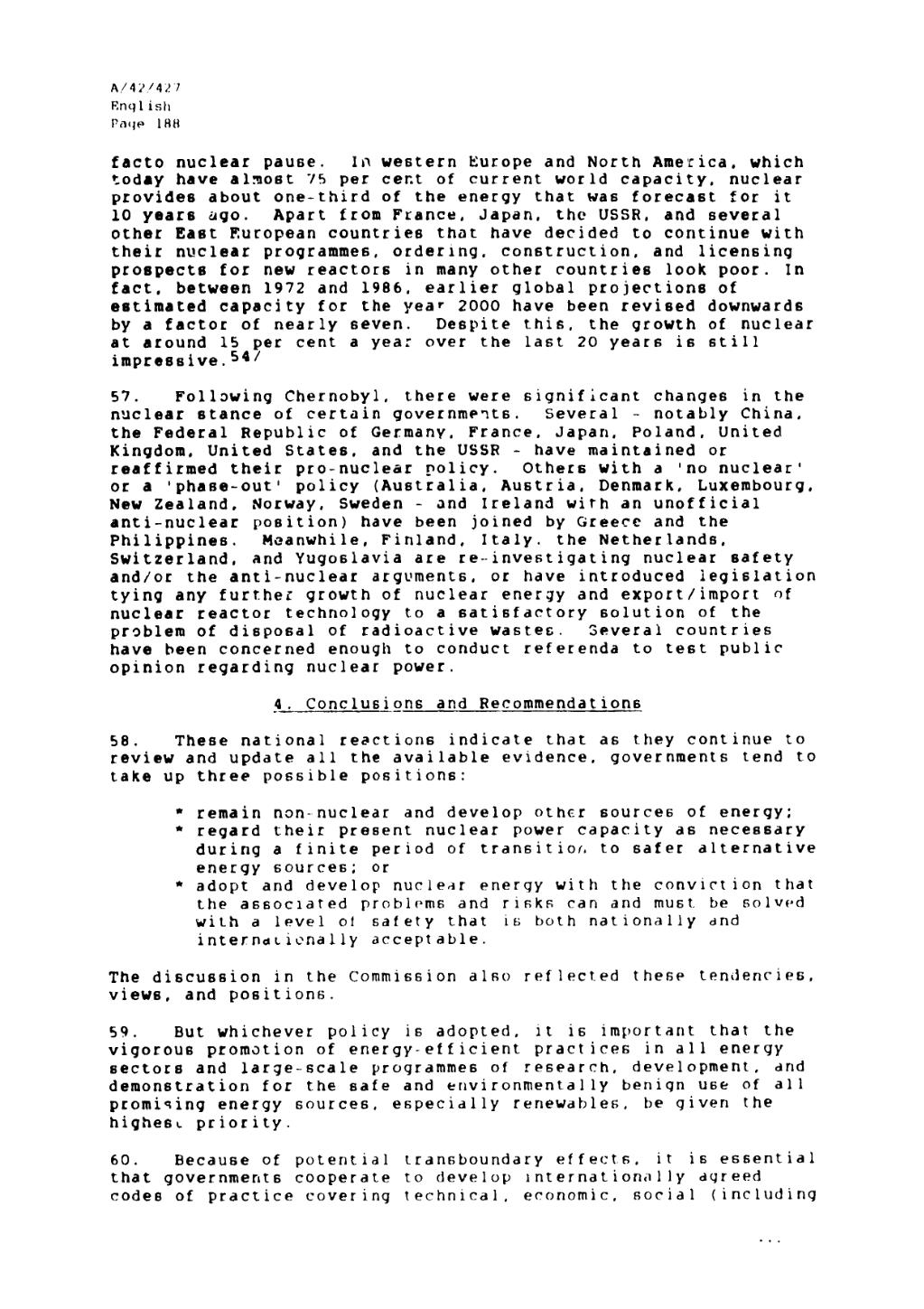A/42/427
English
Page 188
facto nuclear pause. In western Europe and North America, which today have almost 75 per cent of current world capacity, nuclear provides about one-third of the energy that was forecast for it 10 years ago. Apart from Fance, Japan, the USSR, and several other East European countries that have decided to continue with their nuclear programmes, ordering, construction, and licensing prospects for new reactors in many other countries look poor. In fact, between 1972 and 1986, earlier global projections of estimated capacity for the year 2000 have been revised downwards by a factor of nearly seven. Despite this, the growth of nuclear at around 15 per cent a year over the last 20 years is still impressive.[1]
57. Following Chernobyl, there were significant changes in the nuclear stance of certain governments. Several - notably China, the Federal Republic of Germany, France, Japan, Poland, United Kingdom, United States, and the USSR - have maintained or reaffirmed their pro-nuclear policy. Others with a 'no nuclear' or a 'phase-out' policy (Australia, Austria, Denmark, Luxembourg, New Zealand, Norway, Sweden - and Ireland with an unofficial anti-nuclear position) have been joined by Greece and the Philippines. Meanwhile, Finland, Italy, the Netherlands, Switzerland, and Yugoslavia are re-investigating nuclear safety and/or the anti-nuclear arguments, or have introduced legislation tying any further growth of nuclear energy and export/import of nuclear reactor technology to a satisfactory solution of the problem of disposal of radioactive wastes. Several countries have been concerned enough to conduct referenda to test public opinion regarding nuclear power.
4. Conclusions and Recommendations
58. These national reactions indicate that as they continue to review and update all the available evidence, governments tend to take up three possible positions:
- remain non-nuclear and develop other sources of energy;
- regard their present nuclear power capacity as necessary during a finite period of transition, to safer alternative energy sources; or
- adopt and develop nuclear energy with the conviction that the associated problems and risks can and must be solved with a level of safety that is both nationally and internationally acceptable.
The discussion in the Commission also reflected these tendencies, views, and positions.
59. But whichever policy is adopted, it is important that the vigorous promotion of energy-efficient practices in all energy sectors and large-scale programmes of research, development, and demonstration for the safe and environmentally benign use of all promising energy sources, especially renewables, be given the highest priority.
60. Because of potential transboundary effects, it is essential that governments cooperate to develop internationally agreed codes of practice covering technical, economic, social (including
/…
- ↑ C Flayin. 'Reassessing Nuclear Power, in Brown et el., op. cit.; British Petroleum Company. op. cit.
